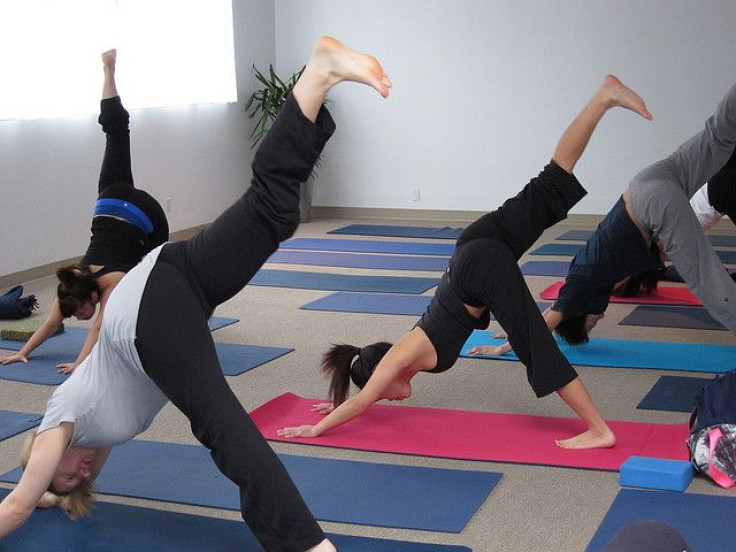Hatha Yoga Boosts Older People’s Brain Function More Than Exercise Alone

Older adults who practiced hatha yoga for three days a week over the course of eight weeks improved their cognitive performance on tasks related to daily life, a new study reports. The findings suggest exercise alone may not offer sedentary adults the maximum health benefits.
Hatha yoga is an ancient spiritual practice that relies on mindfulness and concentrated breathing patterns paired with strength-building movements. Lead researcher Neha Gothe of the University of Illinois, now at Wayne State University, said the activity produced greater performance boosts than exercise alone because hatha yoga has an immediate effect on the body’s response to stress — an effect that isn’t produced as quickly or to the same degree as normal exercise.
"Hatha yoga requires focused effort in moving through the poses, controlling the body and breathing at a steady rate," Gothe said in a statement.
As part of her doctoral research at the University of Illinois, Gothe recruited 108 adults between the ages of 55 and 79. Roughly half the group participated in hatha yoga classes at consistent intervals over the eight-week period, while the other half worked out for the same amount of time but did toning and stretching exercises instead. At the end of each trial, subjects completed a set of tasks that judged their reaction times, information recall, and ability to switch between tasks.
Participants in the hatha yoga group were the obvious standouts. Their reaction times were faster, their memories sharper, and their multitasking skills more adept. Gothe speculates the reason for these improvements may lie in the skills yoga cultivates naturally.
“It is possible that this focus on one's body, mind and breath during yoga practice may have generalized to situations outside of the yoga classes, resulting in an improved ability to sustain attention,” she said. Exercise on its own may breed some amount of focus and attention, but often only as a happy accident. Push-ups and toe touches are generally done for their own sake. At its core, yoga strives for something larger. And it’s in this something Gothe says people find the benefit.
“These studies suggest that yoga has an immediate quieting effect on the sympathetic nervous system and on the body's response to stress. Since we know that stress and anxiety can affect cognitive performance, the eight-week yoga intervention may have boosted participants' performance by reducing their stress."
Gothe and her colleagues admit they still have some sleuthing to do. It’s one thing to observe a group of people shave a few seconds off their reaction times, but it’s far more illustrative to look directly at what’s going on in the brain. So brain scans are in the cards. Also, from a research point of view, eight weeks is a short amount of time to ensure the desired hypothesis wasn’t reached at least in part by some sort of experimental bias. These concerns are set to be addressed in the team’s follow-up research.
Edward McAuley, University of Illinois kinesiology and community health professor, added the findings bolster prior research that showed activity in older age can only help to preserve brain function — an old dog of a brain can actually learn new tricks. “These mental functions are relevant to our everyday functioning,” he said, “as we multitask and plan our day-to-day activities."
Source: Gothe N, Kramer A, McAuley E. The effects of an 8-week hatha yoga intervention on executive function in older adults. The Journals of Gerontology. 2014.



























